2025 AI Engineer Compensation Trends
💡 Looking for more compensation insights? Check out our compensation benchmarking offerings.
In today’s competitive tech landscape, AI expertise has become one of the most valuable skills companies seek and the salary data clearly reflects this trend.
As organizations race to build smarter products and services, AI-focused Software Engineers are commanding increasingly lucrative compensation packages. This analysis dives into where and how much AI engineers are earning, uncovering key differences across experience levels, companies, and regions.
To begin with, on average, AI-focused Software Engineers earn $245,000 per year in the US.

The following locations have the highest total median pay (including stocks and bonuses).
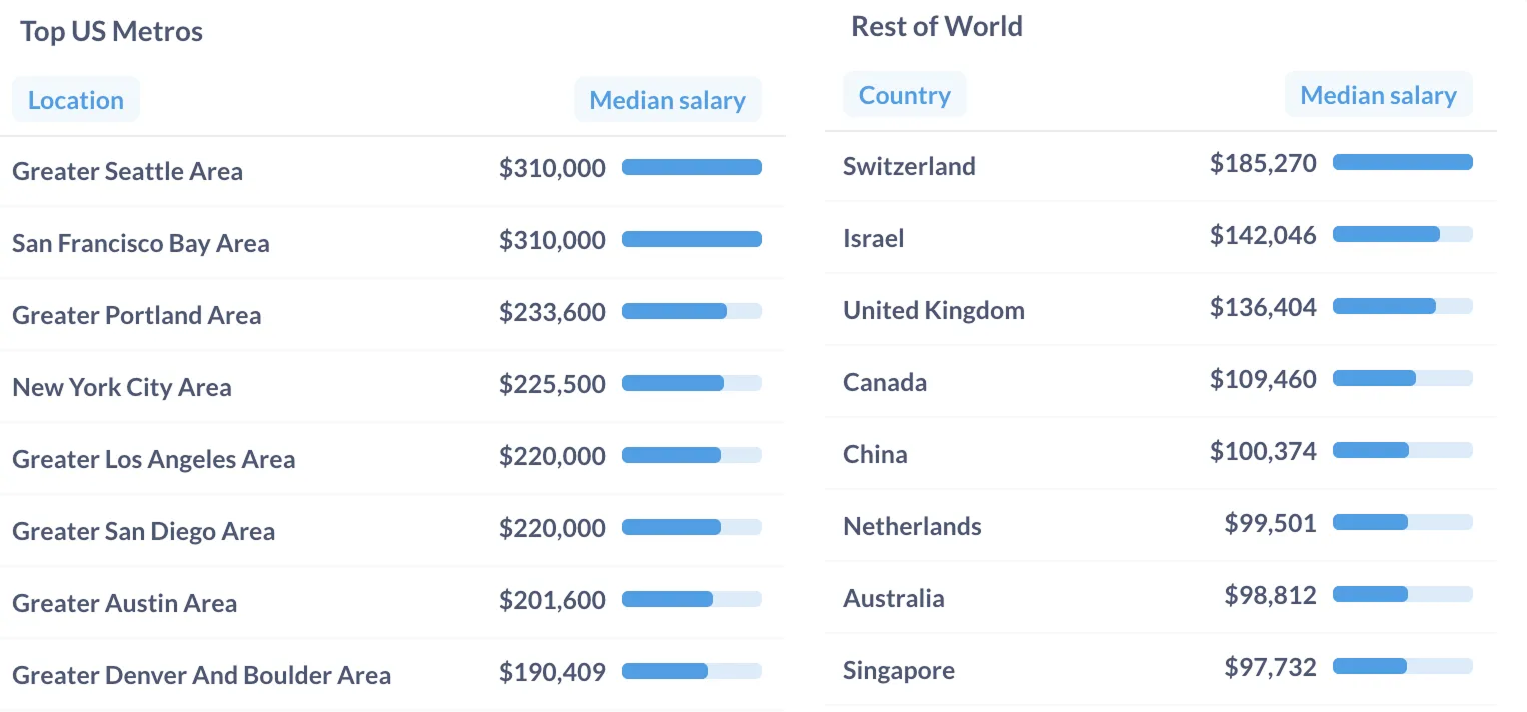
Now, let's visualize this data with charts showing ranges of AI engineer compensation across different regions.
We took all the data points for a location and used the 25th - 75th percentiles to create the displayed range. The markers inside each range indicates the 50th percentile (median), providing further insight into the distribution of compensation within each location.
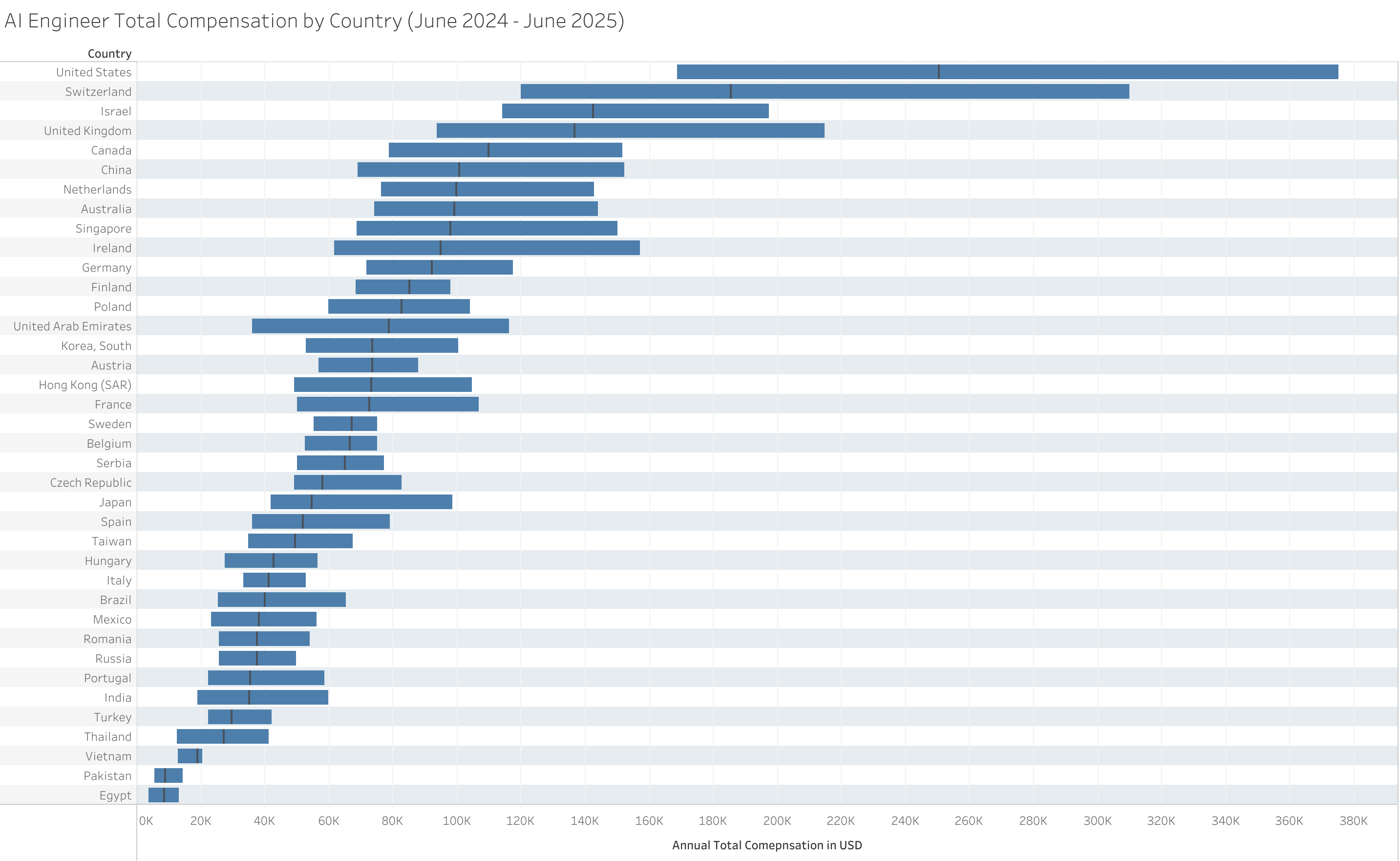
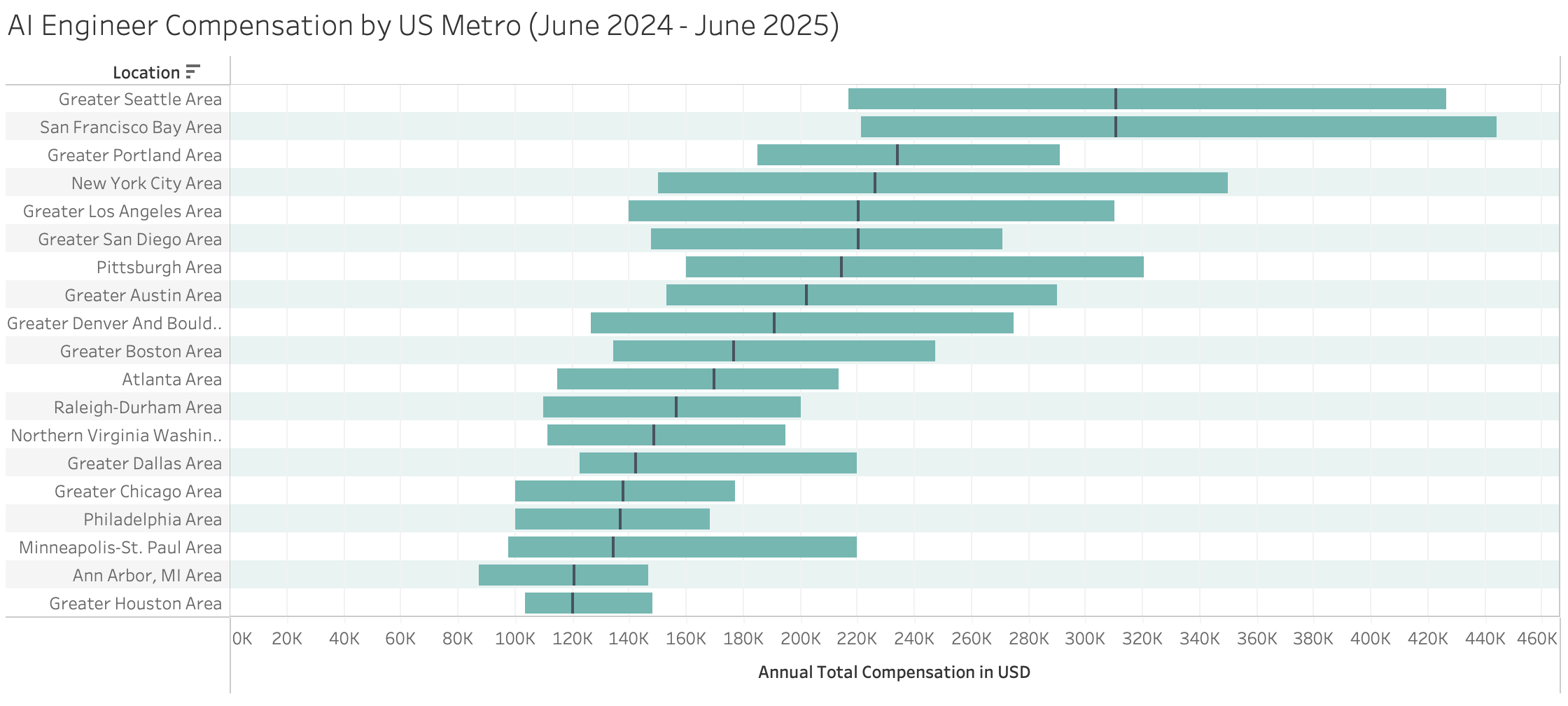
Our salary data shows that Software Engineers specializing in Artificial Intelligence (AI) continue to earn more than their non-AI peers with the difference growing even more at higher levels.
In 2025, AI Engineers at the Entry Level earn about 6.2% more than non-AI engineers, down from 10.7% in 2024, suggesting that the market is starting to level out for junior roles.
At the Engineer level, the gap holds steady at around 11.9%, about the same as last year. For Senior Engineers, the difference remains consistent at roughly 14.2%.
But the biggest jump comes at the Staff Engineer level, where AI specialists earn 18.7% more in 2025, up from 15.8% in 2024, showing that companies are willing to pay a premium for experienced AI talent.
Compensation difference between AI and Non-AI roles and how it changed over time
| Standard Level | Difference in 2025 | Difference in 2024 |
|---|---|---|
| Entry Level Engineer | 6.2% | 10.74% |
| Engineer | 11.9% | 11.6% |
| Senior Engineer | 14.2% | 14.3% |
| Staff Engineer | 18.7% | 15.8% |
The following charts show how having AI expertise boosts compensation across top tech companies with the gap widening at senior levels.
At the Entry Level, the difference is noticeable but smaller. For example, at LinkedIn, AI engineers make about $288,050, compared to $225,000 for non-AI engineers.
At the Senior Level, the premium grows. Companies like Snap and Cruise pay AI engineers around $635,000 and $513,000 respectively, which is significantly higher than their non-AI counterparts.
But the most dramatic gap shows up at the Staff Engineer level at Intuit:
- AI engineers there earn close to $917,000
- while non-AI staff engineers earn about $515,000
That’s a difference of almost $400,000 highlighting just how much some companies value AI expertise.
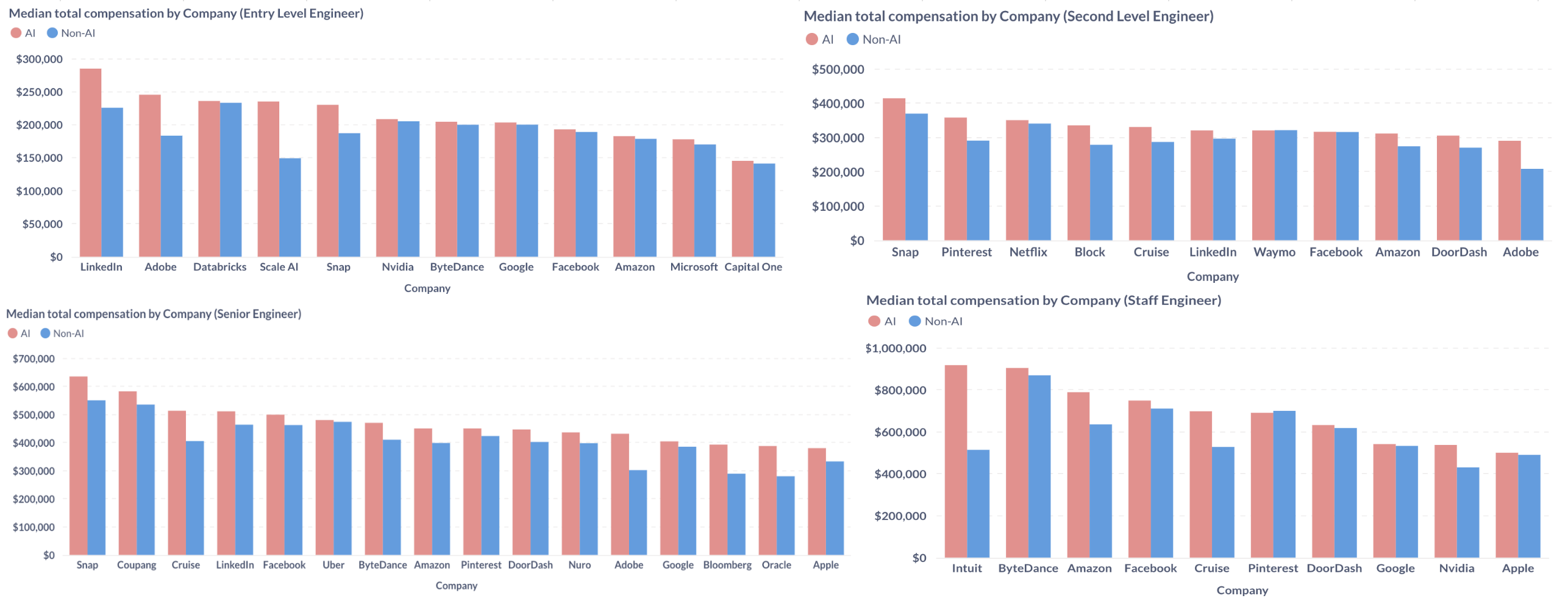
Now, let’s explore how AI engineer compensation differs across companies. This chart highlights the top 20 employers and reveals how pay for AI talent varies from one organization to another.
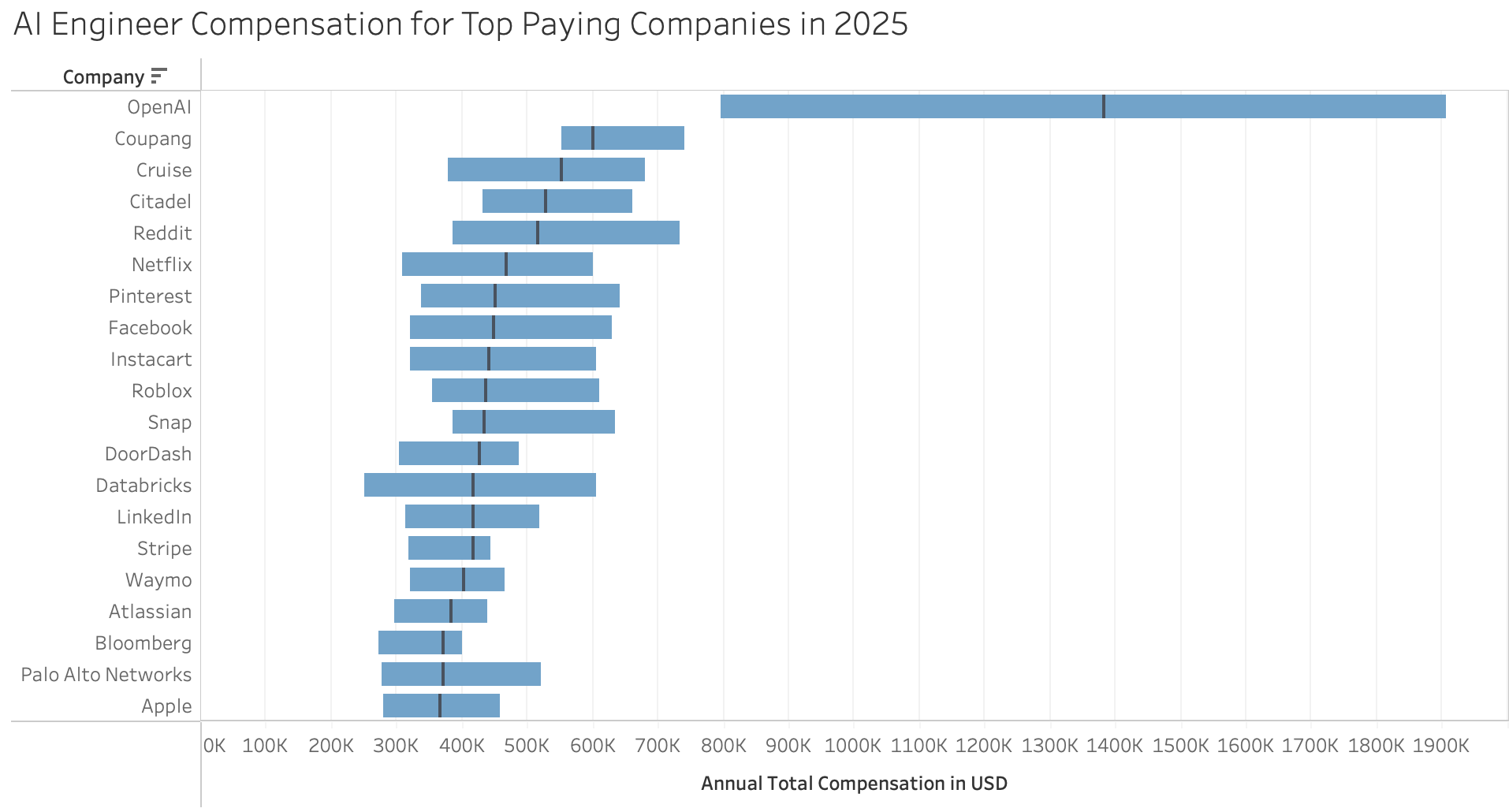
Looking at salary trends over time, we see noticeable fluctuations in AI engineer compensation. Median salaries rose to a peak of $295,000 in March 2024 and after peaking, salaries fell to about $228,500 in January 2025 but rebounded by year’s end, rising to $277,000 in March and settling around $260,000–$269,000. This bounce back was driven by receiving more high compensation packages for Facebook.
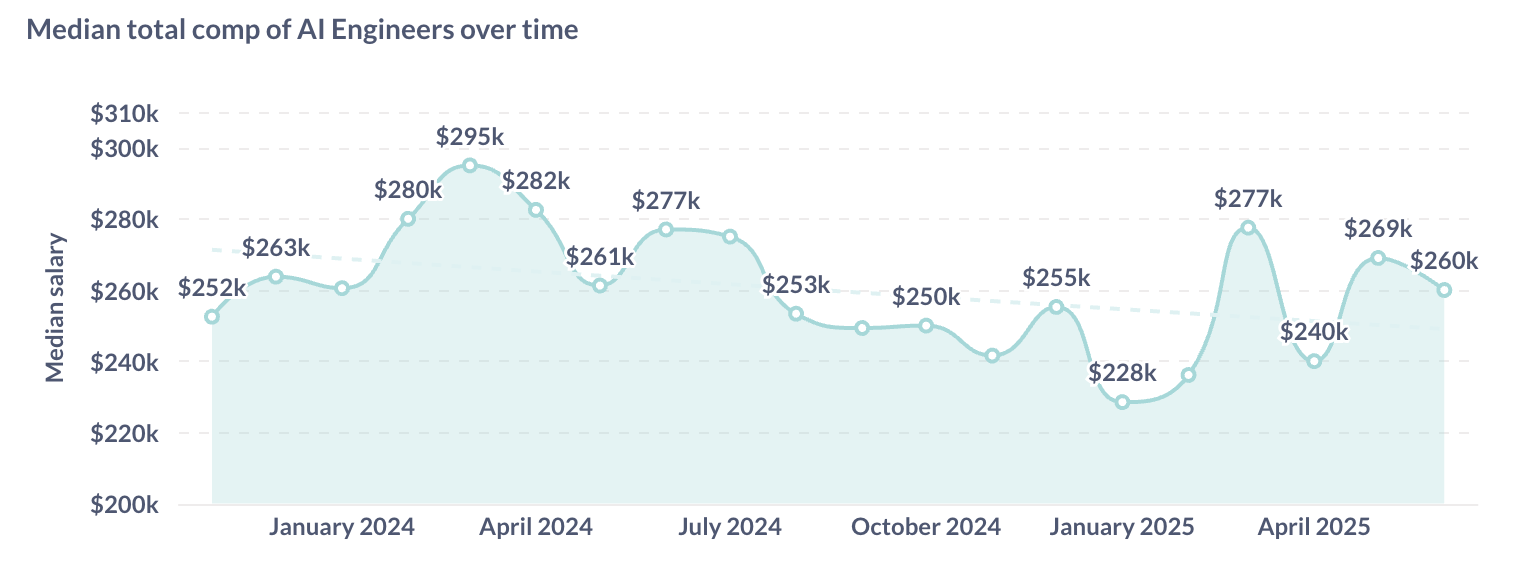
As the AI job market evolves, companies are clearly willing to pay more for specialized skills, especially at senior levels. Despite some fluctuations, demand remains strong, with firms like Facebook and OpenAI driving recent salary increases.
Need help negotiating your package for an AI role? Maximize your offer with help from our team of experienced recruiters from the industry. We've helped Research Scientists, AI Engineers, ML Engineers, ML Ops, Data Scientists, and other similar roles secure the best offers at large tech companies, high growth startups, and everything in between. View our recent outcomes here.

